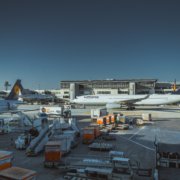Articles
1. The usage of ‘a’
- Definitions, general statements: A cat is a domestic animal = Cats are domestic animals.
- Origins: He’s a Frenchman. He’s an American.
- Religion: She’s a Catholic. He’s an Anglican.
- Occupation: She’s a doctor.
- Politics: She’s a Socialist. She’s a Republican.
- An example of the class’: It’s a Forsyte. It’s a Picasso.
- ‘A certain person whom I don’t know’: A Mr. Wingate phoned you and left a message for you.
- ‘Only one’: I’d like an apple/ a hundred, a thousand, a million/ a quarter, a third, a half/ a pound, a dollar
- Measurement: 80 p. a kilo, 40 km an hour, 30 miles a gallon, twice a day
- After ‘what’ and ‘such’ in exclamations: What an interesting story! My boss is such an idiot!
2. The usage of ‘the’
- the group as a whole: The British and the Americans have been allies for a long time/ The Europeans are a long way from political unity. The Liberals want electoral reform. The Beatles, The Sex Pistols, The Exploited
- ‘when you want to specify the person’: The Smith you are looking for, no longer lives here.
- time sequences: the beginning, the following day, the past, the present: In the past people had fewer expectations. In the morning, in the afternoon in the evening.
- fixed expressions: at the moment, for the time being, in the end.
- Musical instruments: Tom plays the piano, the flute, the violin.
- The sooner the better, do the shopping, make the beds.
3. ‘Zero article’
- Chicago is a well run city today. ALE The Chicago of the 1920s was a terrifying place.
- Chemical symbols: H2O
- Lakes: Lake Erie, Lake Geneva
- Mountains: Everest, Mont Blanc (ALE the Alps, the Himalayas)
- Islands: Christmas Island, Easter Island ( ALE the Azores, the Bahamas)
- Countries: Sweden, Poland (ALE the United Kingdom, the Republic of South Africa)
- Universities: Cambridge University ( ALE the University of Cambridge)
Put the articles into the following sentences, only when necessary:
1. I need ……… computer, and I think I know ……… kind of computer I want.
2. I would like to buy ……… motorbike which does 120 miles ………hour.
3. In ………beginning I trusted him. I even invested ………. money in his business course in ………. Great Britain.
4. You have asked me for ………. advice. If you need ………. help ask ………. person you are sure you can trust.
5. ………. knife is ………instrument with which you can cut things.
6. This is ………. fastest car I have ever driven.
7. ‘Life on ……… Earth’ was written by David Attenborough late in ………. 50s.
8. I have graduated from ………. University of ……….Leeds.
9. He went to New York ……… plane.
10. He comes from ……….. Unites States of ……….America.
11. I have never climbed any mountain in ……….North America but I know all ………Andes.
12. Francis Ford Coppola, ……… director of ‘Dracula’, has been granted ……… first Oscar in his career.
13. How much are ………cherries? Three pounds ………. kilo.
14. ………. Americans are ……….people who know how to work real hard.
15. ………stickers I gave you were not free samples.
16. ……… political influence in …….. Europe was divided between ………US and ……… Soviet Union.
17. ………Canary Islands is one of …….. most popular tourism destinations in ………entire world although they are far in ……..Atlantic Ocean.
18. At …….. Newsweek seems to be ……….most popular weekly in ……… America.
19. ……… Lake Geneva is ………. really picturesque holiday destination.
Odpowiedzi wyślij nam do sprawdzenia!



